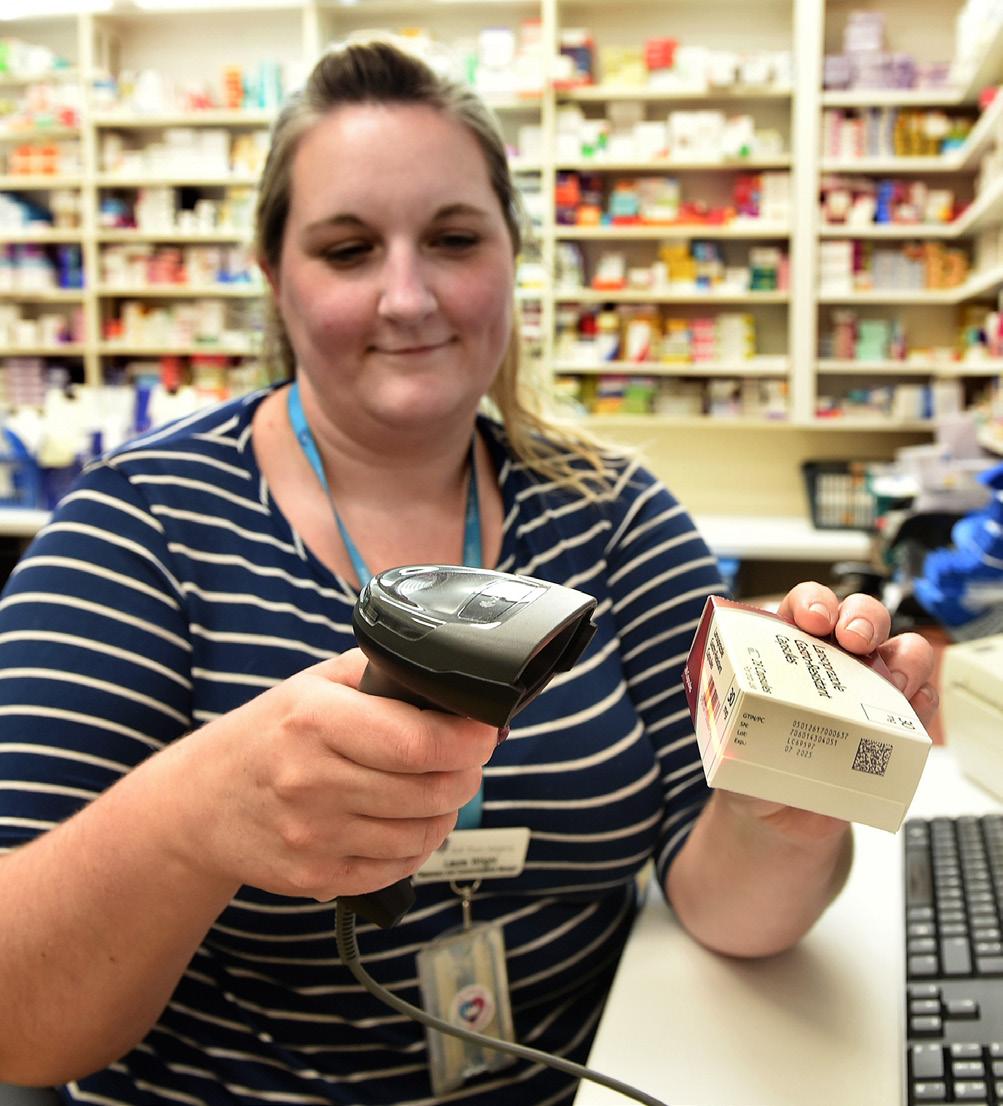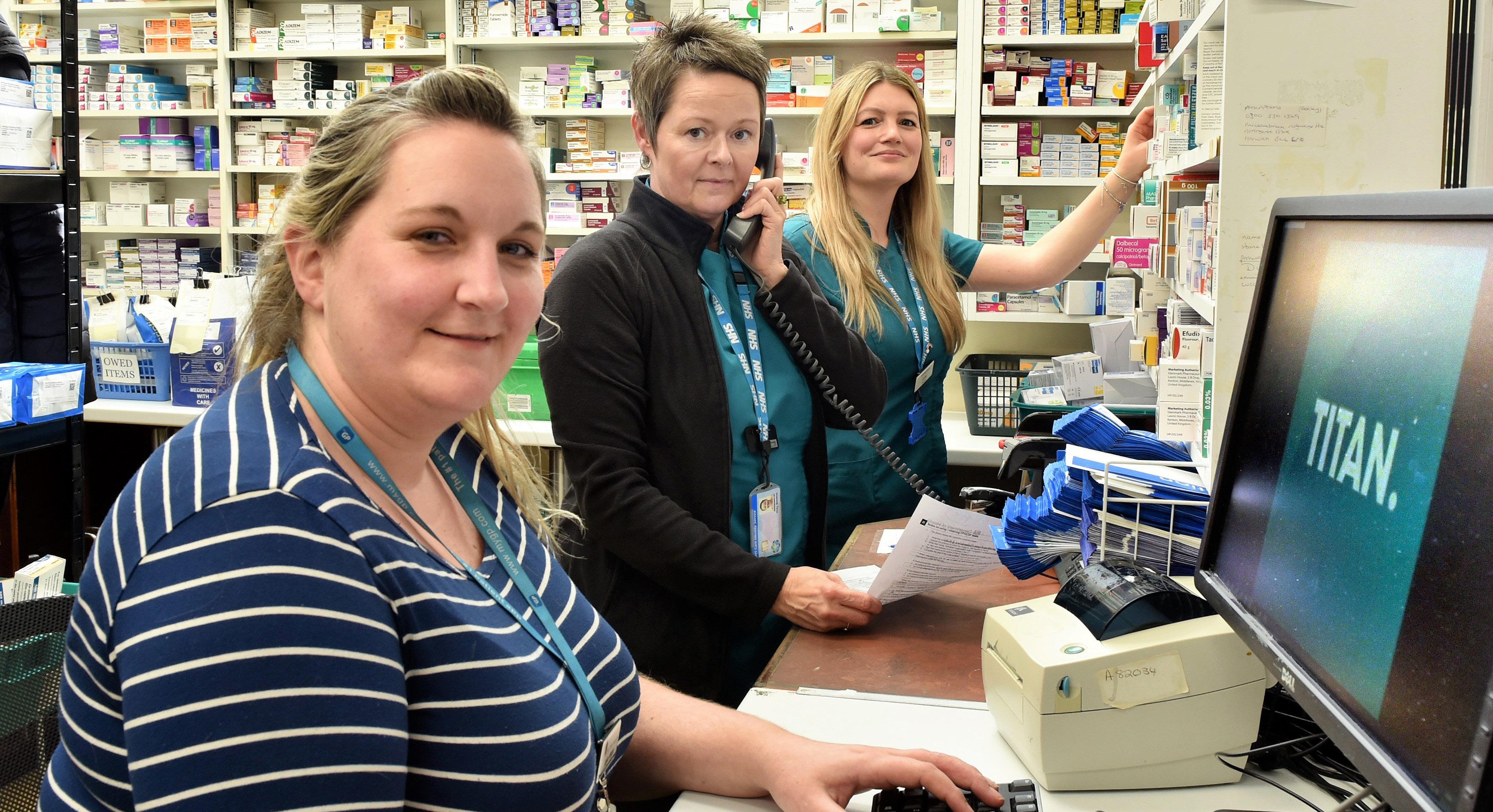
3 minute read
Bringing technology to rural practices
from Health Business 23.3
by PSI Media
Dispensing Doctors are integral to primary healthcare in rural communities. However, sometimes they can be a little bit behind the rest of the NHS when it comes to technology. HB spoke to Laura Wright at Stoneleigh Surgery in Milnthorpe, Cumbria, the first dispensing doctor in England to deploy end-to-end EPS for medicines management
Dispensing doctors are practices with an additional licence to dispense prescriptions on site. They are usually found in rural areas, with limited pharmacy provision. There are currently around 1,000 dispensing doctor surgeries in England, dispensing around 6.5 million prescriptions a month. That’s around 7 per cent of the national total of prescriptions. Dispensing doctors are different from pharmacies, in that they don’t have a pharmacist. However, the process for dispensing is similar – a prescription is generated, labelled and bagged in the same way.
Prescriptions
The software that dispensing doctors use is often an extension of the prescribing system and can be quite basic. Community pharmacies generally have better technology. Up until now, there has been no EPS (Electronic Prescription Service) system for dispensing doctors, despite it being available for pharmacies for 18 years. Therefore, every prescription is written on paper. In comparison, 95.3 per cent of prescriptions from community pharmacies are issued electronically.
The NHS has a target of 100 per cent of prescriptions being issued electronically, but dispensing doctors are dragging down the figures.
New technology
A new independent dispensing system has been accredited by the NHS for Dispensing Doctors to process electronic prescriptions. Titan is not linked to any particular GP software and can operate in any site. The new system aims to improve efficiency, without the use of paper. Other benefits include barcode scanning, to reduce dispensing errors; artificial intelligence, to improve efficiency; and digital workflow, so everyone knows where everything is.
Laura Wright at Stoneleigh Surgery in Milnthorpe, Cumbria is the first dispensing doctor in England to use the new technology. She answered some of HB’s questions.
Dispensing doctors
We first asked about the importance of dispensing doctors and their benefit to rural communities. Laura said: “Dispensing doctors are more important to rural communities than ever before. With large chain community pharmacies closing their small rural shops and moving their dispensing into large hubs, dispensing doctors provide the personalised, local service that patients want and need.
We know all of our dispensing patients and our fantastic team go above and beyond every day to look after them. If there is ever a query concerning a prescription, we have the patient’s clinical record at our fingertips and can resolve any issues, far quicker than a community pharmacy could.”

How it works
We asked how the new system works, how it is different to the old system and what benefits this brings. Laura replied: “Titan allows us to electronically nominate ourselves, enabling the dispensary to receive prescriptions from any of our six sites via EPS. This means that our GPs no longer have to sign prescriptions by hand which we believe saves the GPs on average between 20 and 30 minutes a day. Being able to nominate ourselves has also streamlined our processes for acute prescriptions issued at different branches. In terms of our dispensing processes themselves, using the new system has reduced the time taken to dispense a prescription by probably 50 per cent when compared with the system that was previously in place.
“The new system automatically detects the manufacturer, pack size, batch number and date of expiry from the FMD code which our previous system did not.
“It is also possible to dispense the items from the prescription in any order, which we could not do previously.
“We no longer need to manually count, package and post paper prescriptions for
NHSBSA submission at month end as these are sent electronically.”
WiFi problems
Change always comes with challenges, as Laura explains: “There haven’t been any real issues since its implementation in November 2022. The only issue that we have had is that, due to the poor WIFI signal in our practice, we are unable to use the ‘Edo’ handout facility which would further improve the patient experience by sending an email to them when their prescription is ready to collect. We are working with TITAN to find a work around for this problem though.”
On the other hand, there have been several benefits: “We are finding that both our workload and patient expectations are increasing. With the greater workload, we are encouraged to streamline our processes and make ourselves as efficient as possible. Titan is simple to use, has excellent safety features and saves time for our dispensary staff, clinicians and GPs.”
There has also been a noticeable difference for patients, as Laura explains: “Patients can benefit from their prescription being ready sooner and will benefit from the notification email once this facility is up and running.” L https://digital.nhs.uk/services/electronic-










